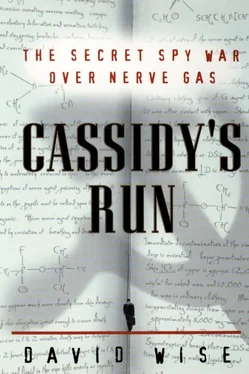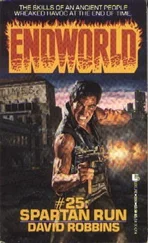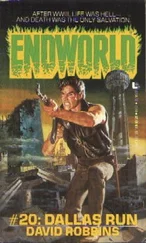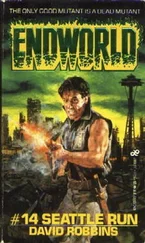“He told me how to take the rollover camera and wrap it in waxpaper, then tinfoil over that, and then cover it with plaster of paris. Plaster of paris is a gray powder.You add water and mix it in a bucket,and it has the consistency of dough or Spackle.You mold it around the tinfoil and let it harden.It made a coatinga bout aquarter of an inch thick. It would dry in an hour.Sometimes I’d rubsand or dirt in it.The rocks were light gray, or darker.”Cassidy quickly became expert at fashioning the phony rocks. Toany casual observer, they were in distinguishable from real ones.
Now the meetings and exchanges of material between Danilin and Cassidy began to follow a set procedure, a sort of espionage ballet. The choreography seldom varied.
“First I would go to a drop site and leave my rock, with the rollover camera inside. The drop sites were listed in the instructions. A lot of them were near Burke, Virginia,” a Washington suburb. Cassidy then drove to a designated point in nearby Springfield. While he was en route, a Soviet retrieved Cassidy’s rock. In Springfield, “ ‘Mike’ would be waiting on the street. Or I would park and walk a block to where he was waiting. Then he would get in my car and we’d drive to the parking lot of the bowling alley. Always at nine P.M. At the personal meetings, nothing would pass. We’d part around eleven.”
This way, the Russians reasoned, if something went wrong and the FBI swooped down on the parking lot, neither man had any documents. They were just two people chatting by a bowling alley. At the meetings, Danilin discussed the previous batch of material Cassidy had provided and what he might be looking for next. “When we left the bowling alley we’d drive in my car to wherever he said, and I would drop him off. It was always different from where I picked him up but always in Springfield.”
Cassidy then drove to a prearranged spot to pick up a fake rock that Danilin had left for him before their personal meeting. Inside were instructions in secret writing, a microdot, and cash. The instructions listed more drop and pickup sites and the dates of future meetings.
“The next day I would give the rock to the FBI.” Although Cassidy had the portable microdot reader, it was much easier for the FBI to blow up the microdot in its laboratory and relay Moscow’s instructions to Cassidy. Neither Cassidy nor the FBI would easily have found a microdot inside a rock, but Cassidy was always told where to look. Those instructions came on what appeared to be a blank sheet of paper with secret writing, or SW as it is known in the espionage trade. Cassidy then steamed the sheet of paper and the message became visible.
Usually, the microdot was tucked away in a slit in a matchbook cover that was placed inside the rock. One matchbook had a picture of a Mississippi River paddle steamer; the SW instructions told Cassidy to look under a particular section of the paddle wheel.
In addition to enlarging the microdots to full-page size, the FBI photographed the entire contents of every rock retrieved by Cassidy, including the cash. These were all recorded on eight-by-ten color prints.
The bureau watched most of Cassidy’s meetings with Danilin, and it kept the Russian’s apartment under surveillance. The FBI also tried to follow and photograph Danilin when he cleared drop sites, but that was extremely difficult in the remote, wooded areas of northern Virginia favored by the Soviets. The Russians chose such isolated areas because it was fairly easy to spot anyone who might be following them. Normally, a Soviet agent also had a partner watching his back.
“Physical surveillance of Soviets at a drop was almost impossible,” Charlie Bevels said. “They were aware of it, and they ran countersurveillance. Once Danilin was scheduled to clear a drop in a very dark, rural area. The lab wanted to use infrared film to get a picture of him clearing the drop. I said no. Because when you use an infrared flashbulb, if you are looking straight at it, you can see it go off. I didn’t want to take the chance.”
On another occasion, the bureau was frustrated in its surveillance efforts by the unexpected. “I remember one personal meeting they had at the Rose Hill shopping center in northern Virginia, off Franconia Road,” Bevels said. “We had cameras, and we were in a house that the owners left at our request. We assured them that the house will not be disturbed, there would be no shooting. We had given them twenty-five dollars; go out to dinner, we’ll be here a couple of hours. But at Rose Hill some guy in a huge tractor trailer, Interstate Movers was their name, parked it right in our way. We couldn’t see anything.”
The GRU understood that Cassidy was not passing secret documents for ideological reasons. As far as the Soviets knew, he was betraying his country for dollars. Since Cassidy never split open the rocks before handing them over to the FBI, he never knew exactly how much money they held. But according to Charlie Bevels, “the rocks often contained ten thousand dollars at a time, usually in a little Baggie, rolled up inside the rocks. Sometimes there was more than that.”
But at the meetings with Danilin, Cassidy, playing his role, continually pressed for more money. If the Soviets tended to think of Americans as greedy and materialistic, then he would meet their expectations. “I was always crying for money. I have a teenage daughter, child-support payments for my wife, I have to buy food, clothes, insurance. The piddling amounts you’re giving me aren’t worth the chance I’m taking.”
Despite Cassidy’s complaints to the Soviets that he was being underpaid, the money was rolling in, albeit into the FBI’s coffers to finance the operation. With the GRU paying Cassidy tens of thousands of dollars, the Russians worried that he might display his new wealth conspicuously. His Soviet handlers warned him to spend money carefully and to avoid buying anything that would attract attention.
Intelligence work is highly compartmentalized. Although Taro Yoshihashi monitored the operation from the Pentagon and was deeply involved in the feed, he never met Joe Cassidy, though he admired him from afar.
“I felt Cassidy was one of the most competent double agents we ever had,” Yoshihashi said. “For example, when he bought a freezer, he said to the Soviets, ‘I have enough cash now to buy this, but I did a down payment just like everybody else.’”
When Cassidy needed to write to the GRU, he was instructed to use the special carbon paper he had been given earlier. He recalled how it worked: “The carbon was reddish but dark, it looked normal except for the red color. I would take a sheet of ordinary paper and make a pencil mark to show the writing will be on that side. I would put the special carbon on top of the paper, another paper on top of the carbon, and clip the three together. Then I would take a pencil and write the message. It left no visible marks on the bottom sheet. I’d give the top sheet to my FBI handler and save the carbon paper to use again. I was left with a blank sheet of paper with the invisible writing. I would put that sheet with the secret writing in the rock.”
Cassidy used this method to confirm a meeting date or a drop site or to answer requests from Danilin. “Sometimes he would ask whether I could get him something, and I would respond in a letter that I could or could not, or I was still looking for it. Sometimes I wrote to say a drop site they proposed was no good, it was in an area where there were too many people around.”
Cassidy got on well with Jimmy Morrissey. As it happened, he had a lot in common with his new case agent. Both were born into working-class Irish American families, and they hit it off from the start.
Morrissey was a quintessential Boston Irishman, with a soft New England brogue. Born in Charlestown, the blue-collar neighborhood of triple-decker houses that sent John F. Kennedy and Thomas P. “Tip” O’Neill to Congress, the FBI man was one of five children of immigrants who came over from County Waterford around the turn of the century; his father was a freight handler at a cold storage warehouse.
Читать дальше












